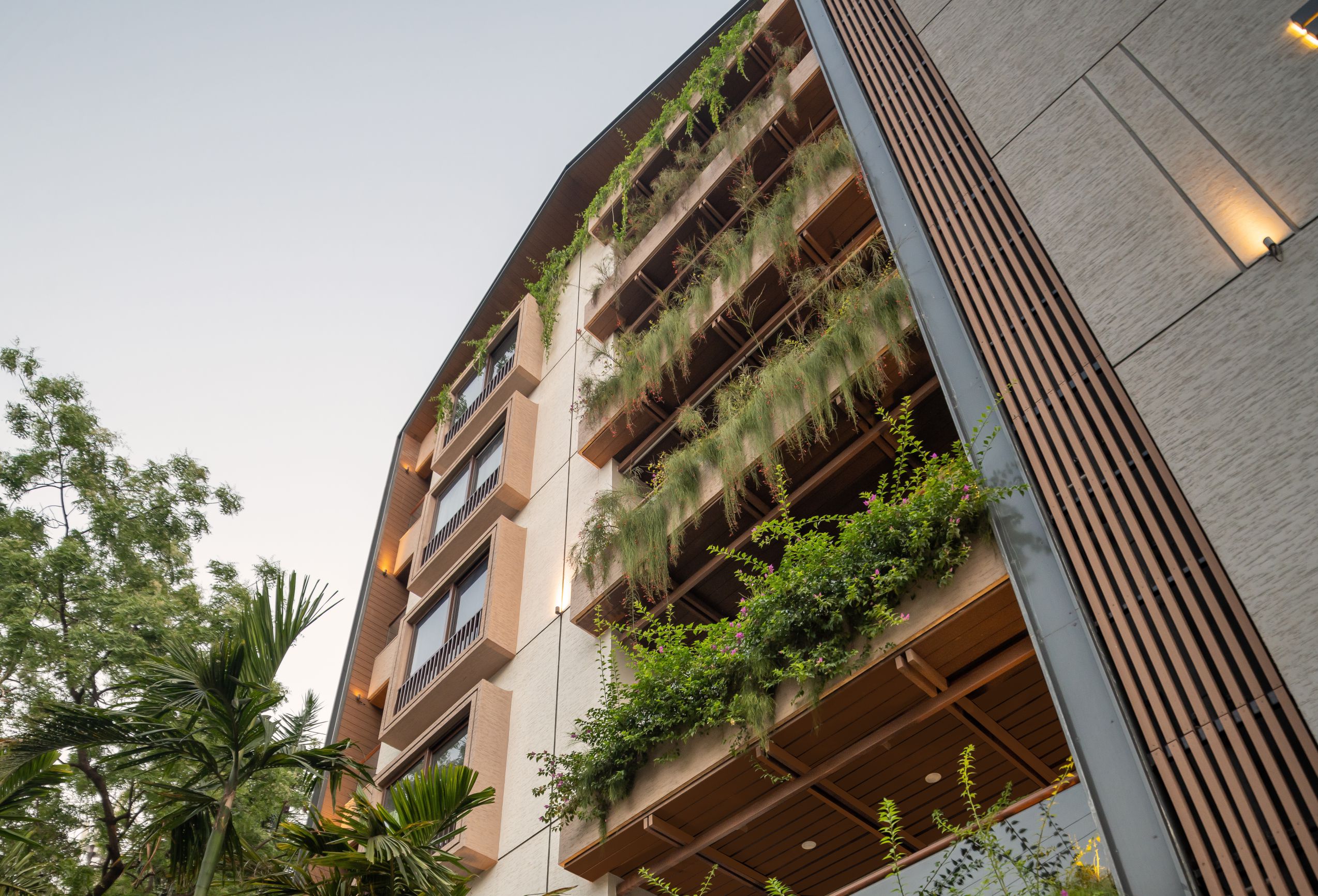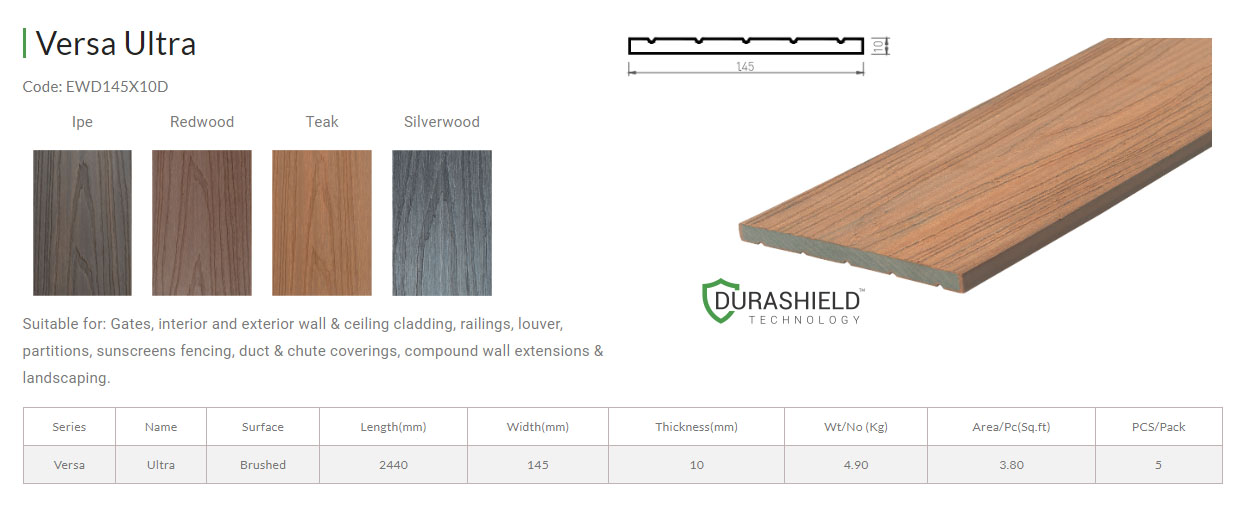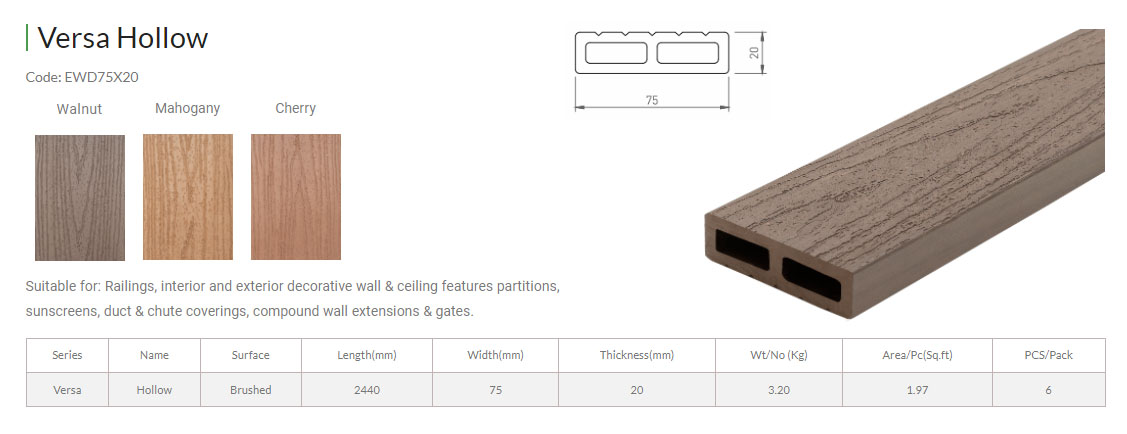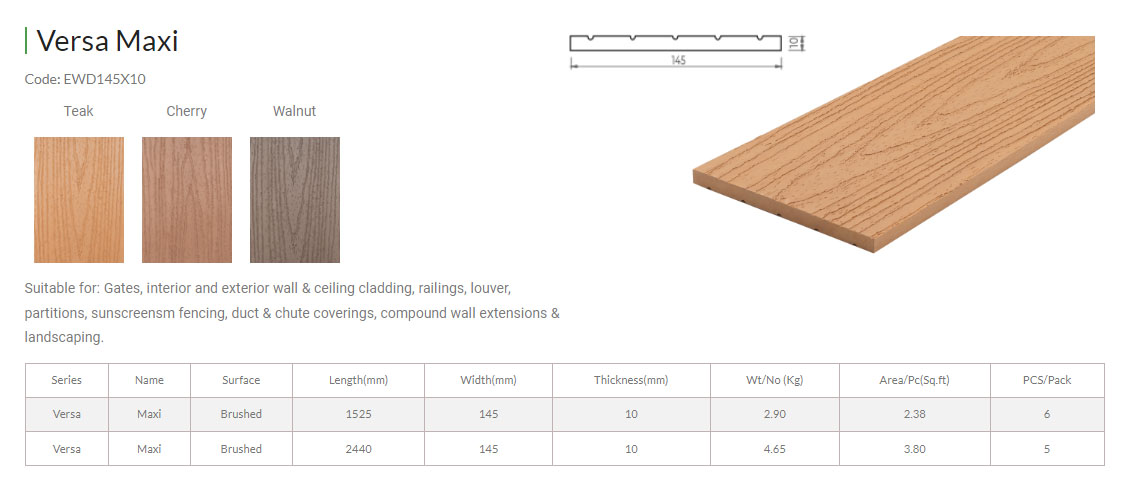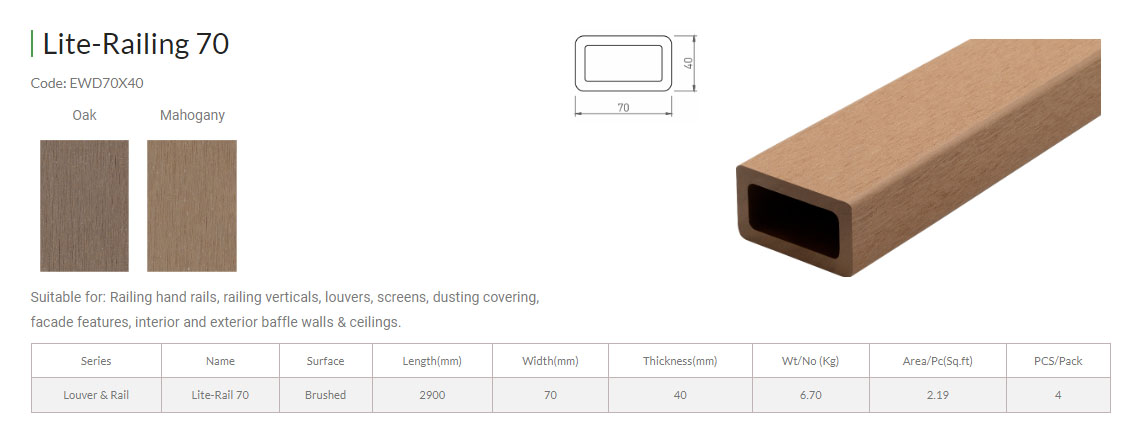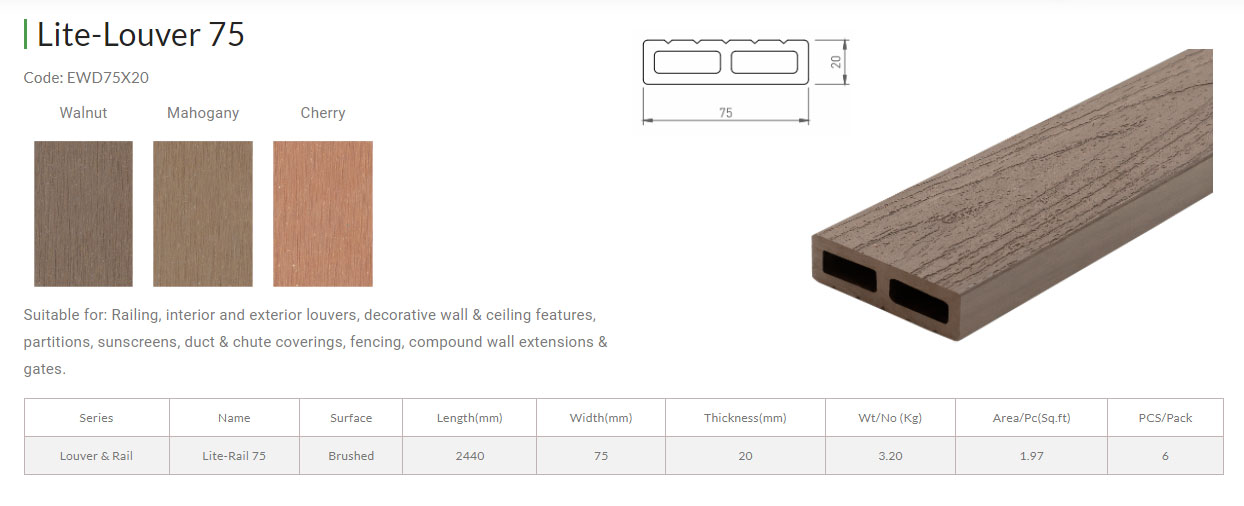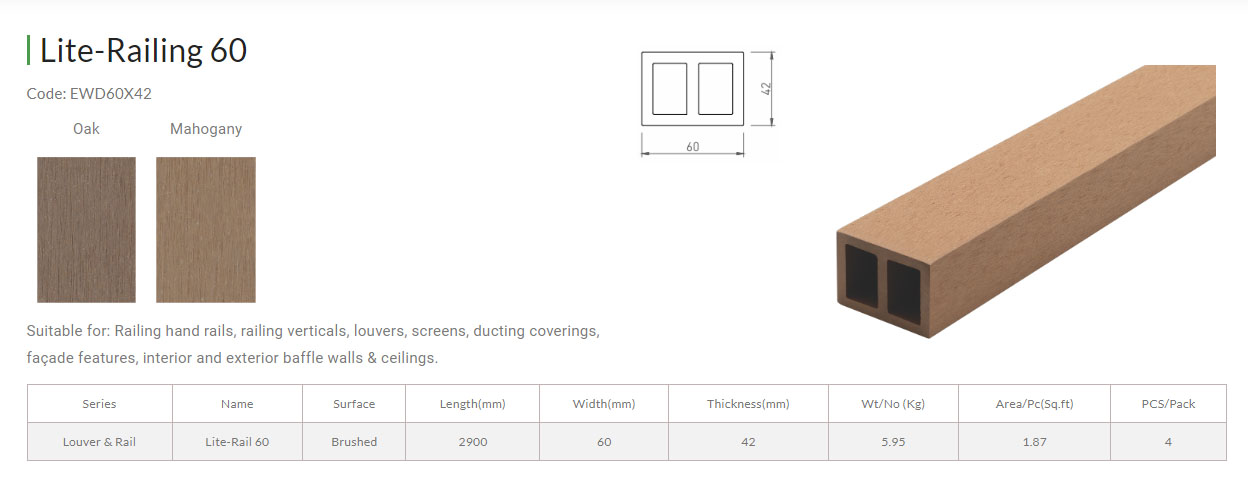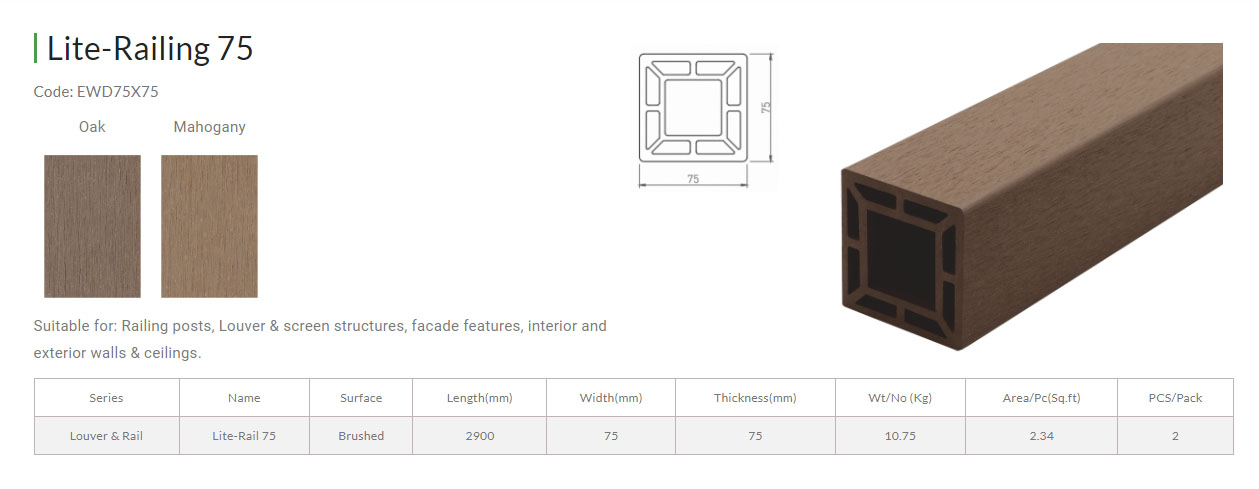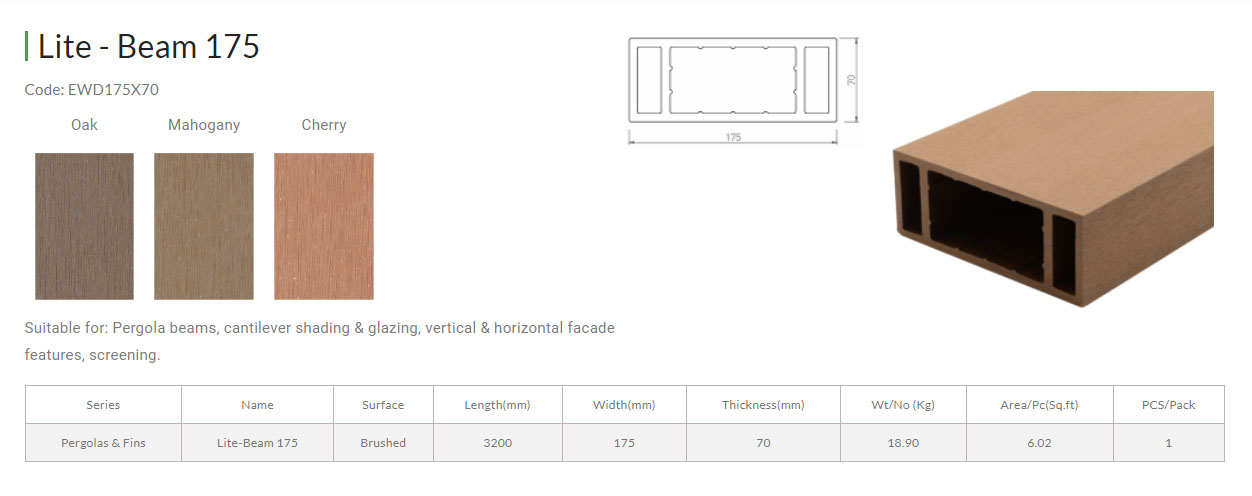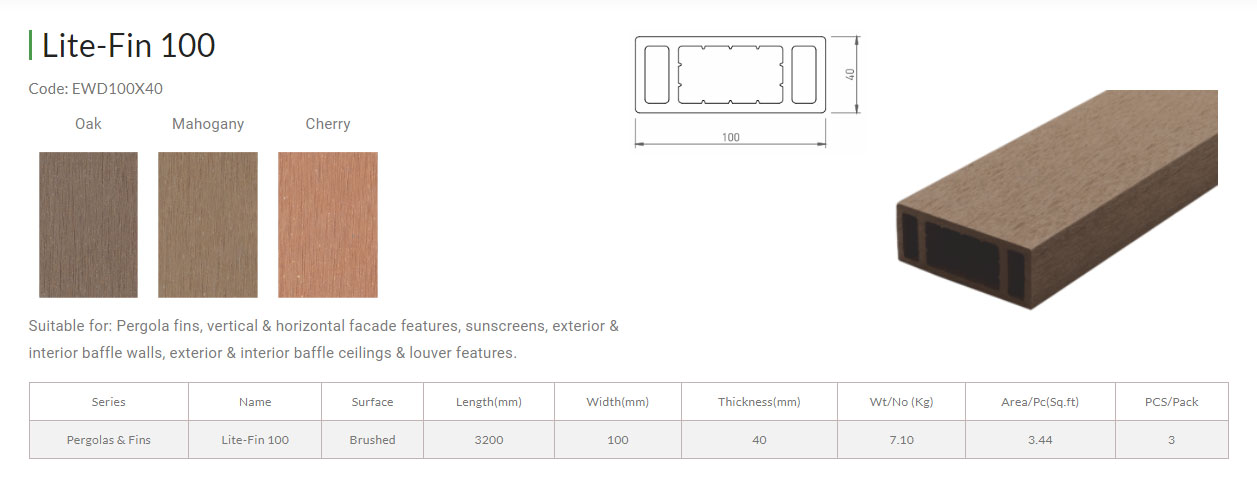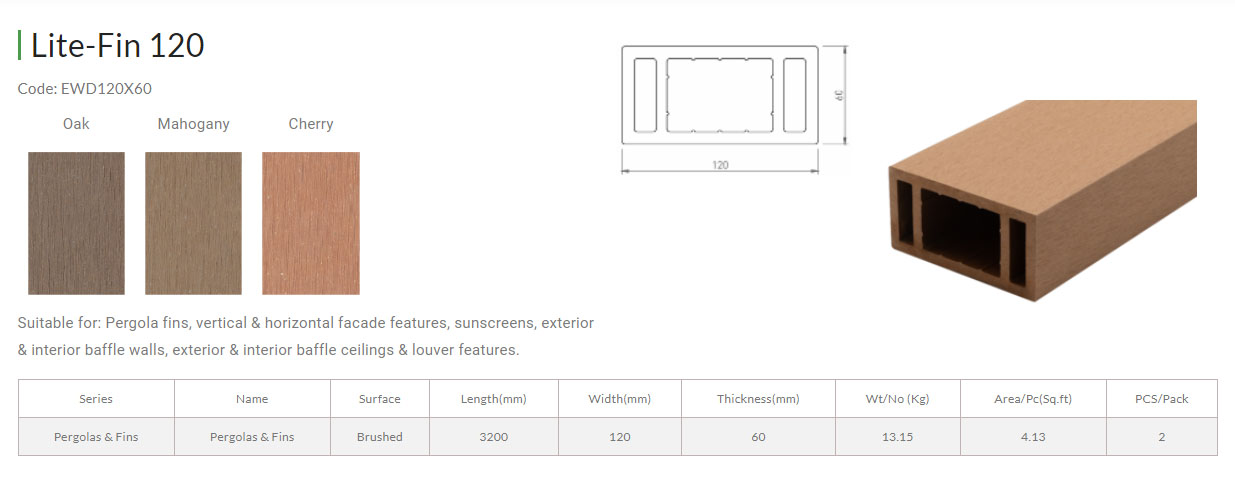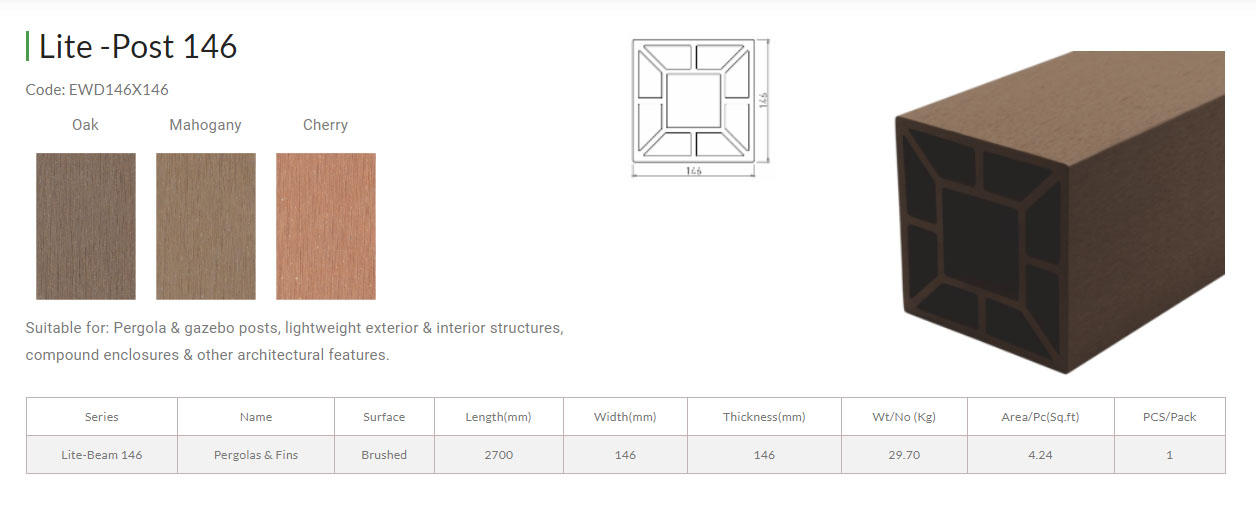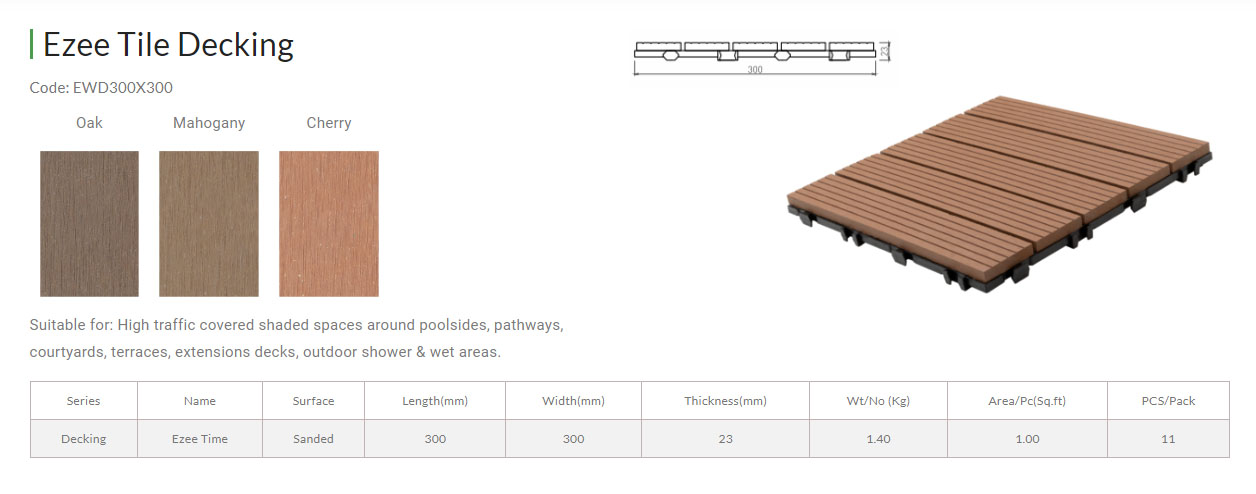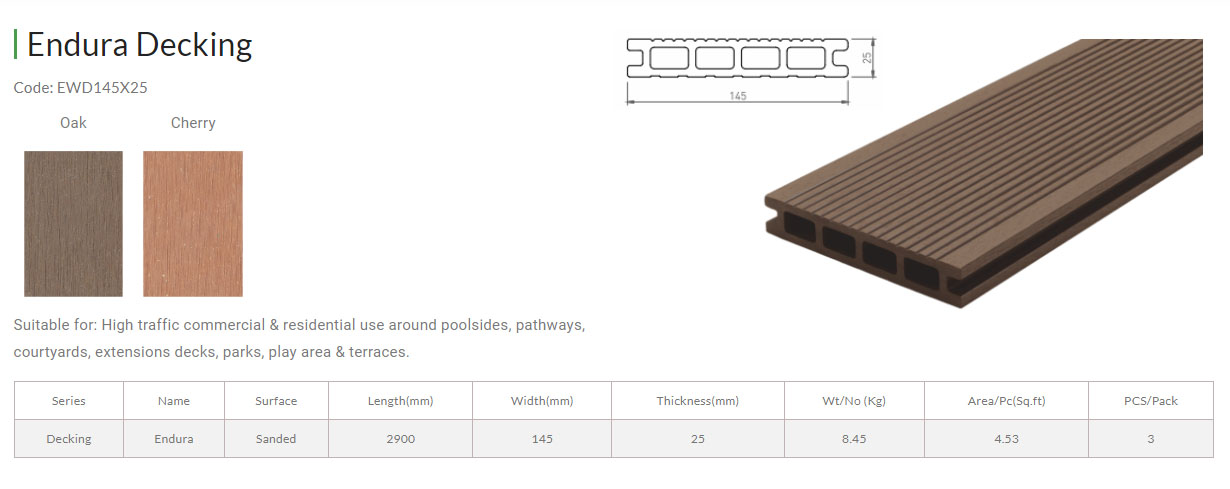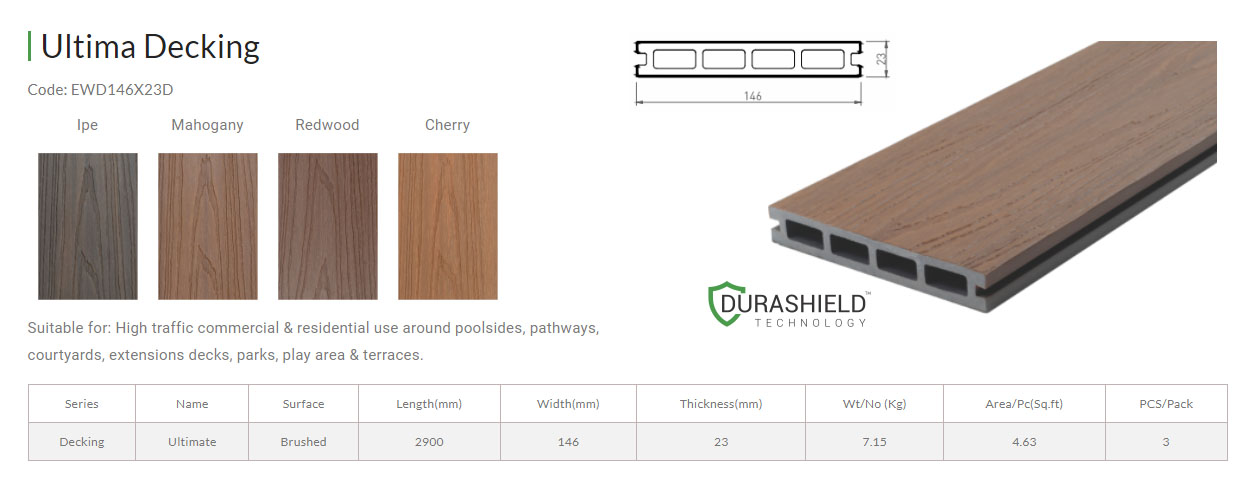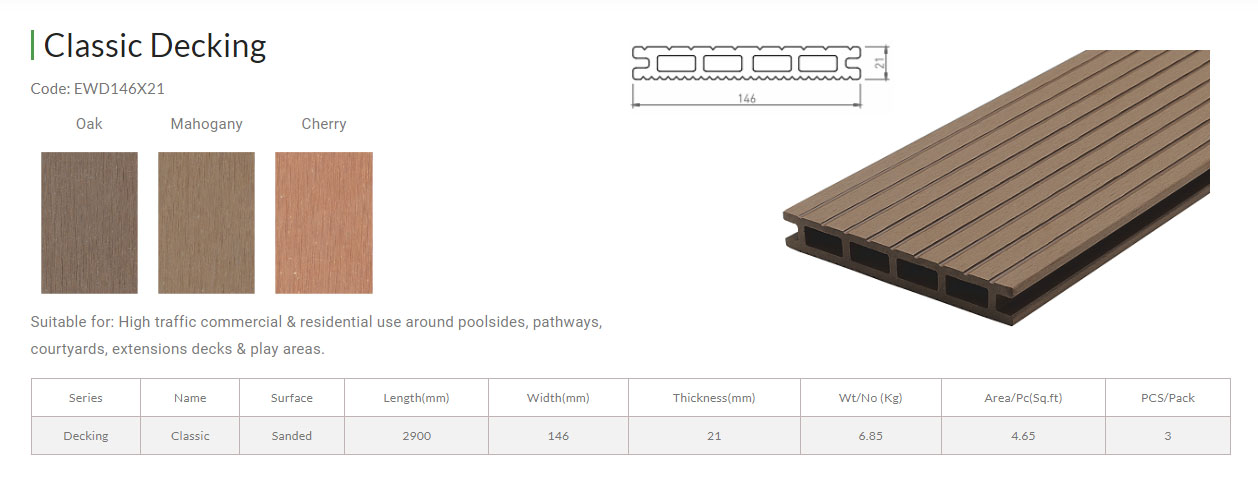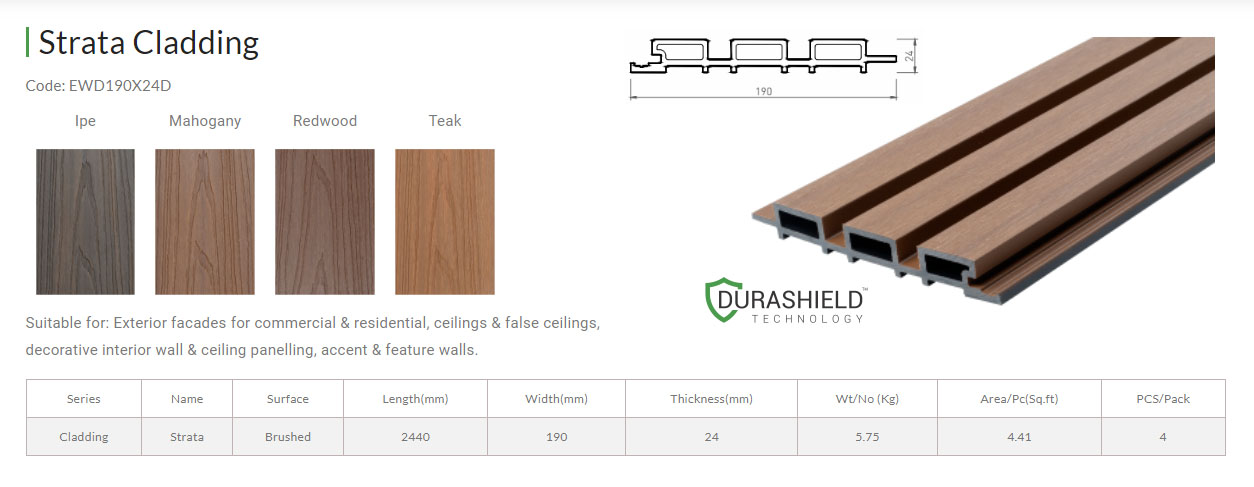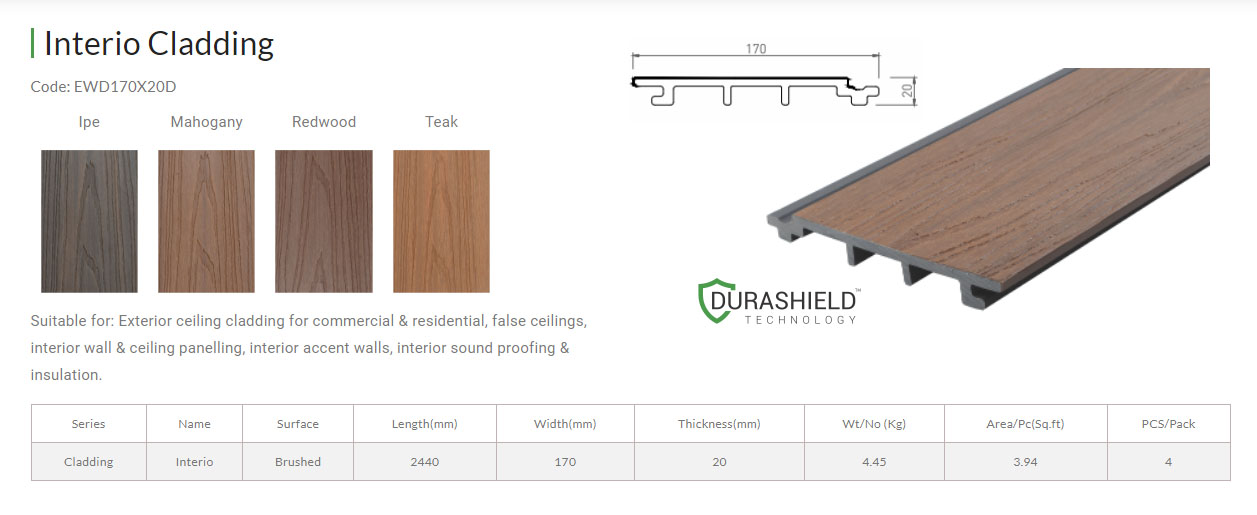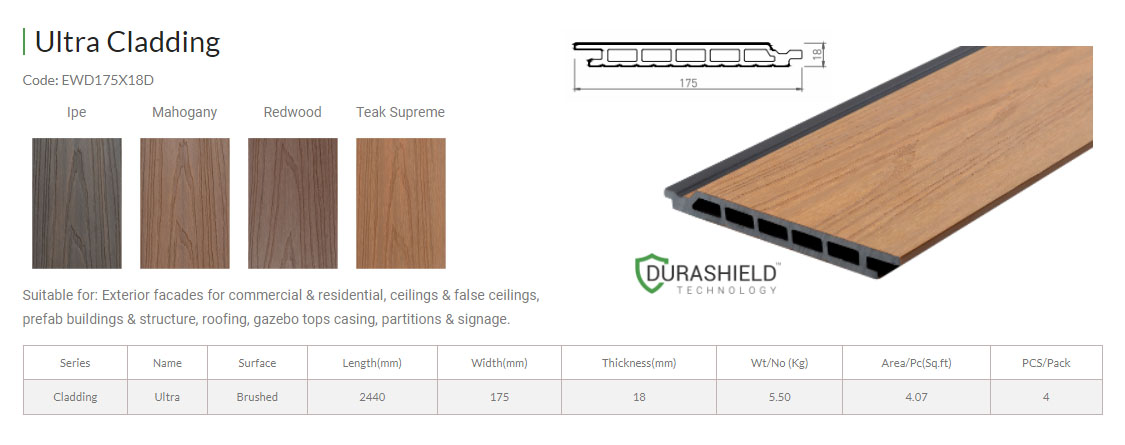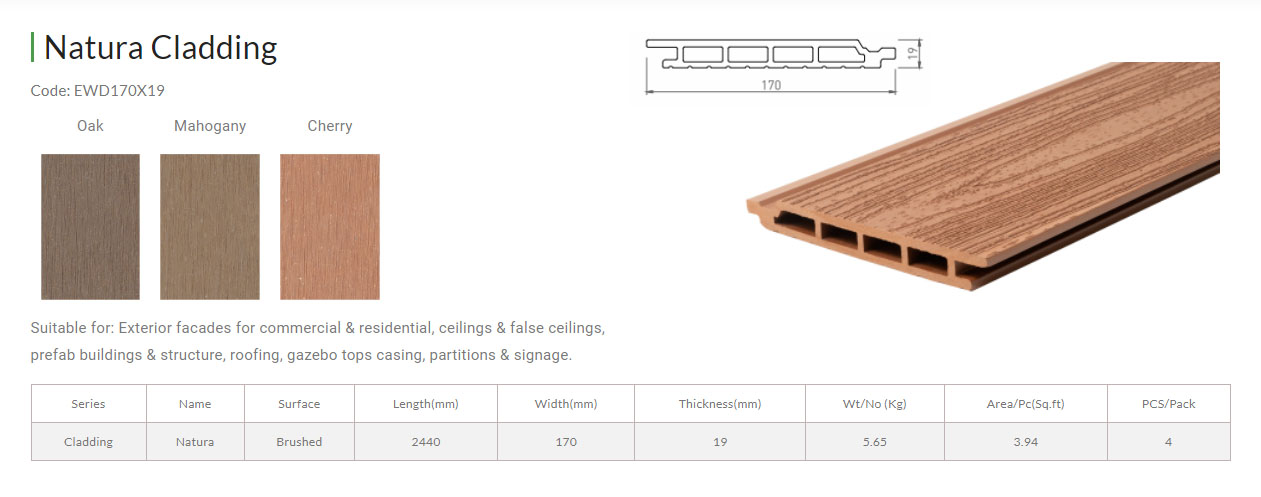Introduction
Exterior cladding plays an important role in the protection and upkeep of buildings. It provides a weather-resistant and insulating envelope around buildings and enhances their aesthetics.
WPC (wood plastic composite) is an innovative material that offers creativity and functionality along with exceptional design versatility. It offers endless possibilities for transforming the exterior of buildings. With the timeless appeal of natural wood and the advantages of composite technology, WPC cladding redefines exterior aesthetics.
Design Versatility
WPC exterior cladding panels possess numerous inherent characteristics that make them superior to other conventional materials used for exterior cladding such as natural wood, high-pressure laminates, and cement boards. Durability, high weathering capability and UV resistance, corrosion, and impact resistance, and better insulation capabilities render WPC an excellent cladding material for facades, walls and ceilings, roofing, and prefabricated buildings. The versatility of WPC panels offers endless creative possibilities.
Color & Texture
- WPC panels come in a wide range of colors, allowing for creative color combinations and patterns. Through appropriate choice of earthy tones or bold and vibrant colors, you can customize WPC cladding to conform to your design ideas.
- WPC cladding offers a choice of smooth, brushed, embossed, or rustic wood-like textures. You can add depth and enhance the visual appeal of an exterior façade by mixing and matching different textures and surface finishes. The texture and depth of WPC cladding panels can create an interesting interplay of light and shadow throughout the day, adding a dynamic and ever-changing dimension to the building’s appearance.
- Contrasting Elements and Geometric Patterns
- Incorporating WPC cladding along with other materials such as metal, glass, or stone can create striking visual contrasts. Different textures and finishes can result in a dynamic and eye-catching exterior design. Experimenting with geometric patterns and arrangements using WPC cladding panels can add a modern and contemporary touch to the building’s exterior.
- Vertical and Horizontal Installations
- WPC cladding can be installed vertically or horizontally, allowing for different design orientations. Vertical installation can emphasize height and elegance, while horizontal installation can give a sense of width and stability.
- Environmental Graphics
- WPC cladding can be used as a canvas for environmental graphics, murals, or branding elements, turning the building’s exterior into a storytelling medium. This enables highlighting the environmental benefits of the material in your design concept. As an eco-friendly alternative to traditional wood cladding, WPC cladding contributes to sustainable design practices.
- Everwood WPC Panels
- Everwood, Chennai, offers a distinct choice of WPC cladding panels for exteriors and interiors that combine beauty & durability to perfection. These panels possess natural premium wood aesthetics and unmatched weathering capabilities. Everwood WPC cladding panels are highly UV stable & fade resistant, and retain their vibrant colors and finish for an exceptionally long lifetime, extending the visual appeal of buildings for years.
- Everwood WPC fluted wall panels or louver wall panels find application in slatted cladding on exterior & interior walls and ceilings, branding backgrounds, and accent walls.
Conclusion
WPC exterior cladding thus offers a versatile and creative range of design possibilities for enhancing the aesthetics and functionality of buildings. When exploring design versatility with WPC cladding exterior, it is essential to consider the building’s architectural style, its surroundings, climate factors, and the intended message or impression you wish to convey. Collaborating with architects, designers, and manufacturers can help translate your creative vision into a functional and aesthetically pleasing exterior design.


